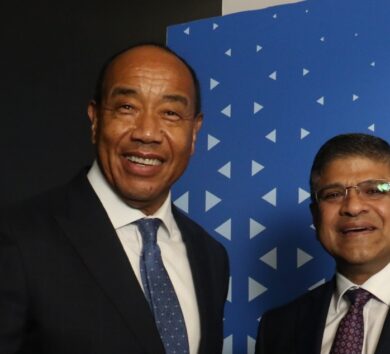

Participating experts in Wednesday’s (March 13) hosted by Phoenix International and MC System webinar on financial inclusion in emerging markets, have highlighted the positive impact that artificial intelligence (AI) will have on enhancing inclusivity.
In an era increasingly defined by digital technology, the spotlight turned to the numerous challenges in attaining financial inclusion, particularly in emerging markets. With a staggering two-thirds of microenterprises in Jamaica shunning digital payment systems and nearly a quarter of the population unbanked, the urgency of addressing these issues becomes palpable.
Dissecting the pivotal role of financial technology (fintech) in propelling inclusivity within these regions is important for getting a wider understanding of how it will play a larger role in banking.

Senator Dr Dana Morris-Dixon, minister without portfolio in the Office of the Prime Minister with responsibility for skills and digital transformation noted tha the Government is making efforts where financial inclusivity is concerned.
She highlighted the importance of people-centricity in both government and financial institutions.
“If you don’t reengineer the process and make it easier for people, then you would have lost. AI is critical… in any new technology, there are going to be positives and negatives. We have to be careful about the ethics of what we are building using artificial intelligence because there is the potential of discrimination against the very people we want to include,” said the minister.
She used a person’s address as an example of where discrimination can be applied, noting that the government and financial institutions should do their part in making sure these automated biases do not occur.
“The government cannot do it alone [ fix the issue of inclusion in financial institutions] and so it relies on the private sector…the banks and… entities like MC Systems or Phoenix International in terms of the core banking platform that is there to be able to deliver on these goals of financial inclusion,” Morris-Dixon stressed.

Kathryn Ann Chin See, product manager at MC Systems, echoed the senator’s statements, adding, “It’s not just access to banking, it’s the ability of individuals and businesses to access and meaningfully use a wide range of financial products and services that meet their specific needs.”
Crucially, See pointed out that the role of AI will come under scrutiny.
The discussion illuminated how emerging technologies can augment regulatory oversight, and how fortifying the financial ecosystem against malfeasance and systemic risks is important— so user trust needs to be harnessed to put the inclusivity measures into practice, banks need to ensure that trust is not misplaced once gained.

Kamal Abburi, director of customer success, data and AI at Microsoft Corp., gave an insight into the American tech giant’s perspective on intelligent banking while reducing costs and increasing inclusivity.
He listed the following as important core processes to ensure banking efficacy and inclusion:
- Real-time, 24/7 processing to serve customers,
- Data culture— relying on signals interpreted by Artificial Intelligence.
- Accelerate new products to market— modernise core banking
- Challenger banks are transforming market segments— keeping up to date is vital.
- Regulatory and market infrastructure requirements
- Lower total cost of ownership (TCO) and the need to reduce ‘Run the Bank’ costs.
He also mentioned that trust and adequate data culture are important to serve customers better as it is an effective tool to use when trying to modernise current banking systems.
“Customers want online experiences, so you as a bank need to be agile” he said as it relates to how artificial intelligence is assisting bank processes by making them quicker and more efficient.
Abburi mentioned that AI has improved the virtual agent response, customer understanding and banking processes.

Shiva Bissessar, managing director at Pinaka Consulting Limited, gave a brief note aligning with the evolving theme of AI in the finance space, largely agreeing with previous speakers, “We want to simply that [the verification methods on the Pinaka online interface] to make the user experience as seamless as possible.” he said
“Balancing the risk that technology brings while providing a service with the advent of AI, you will have a quicker turnaround time [for processes]such as loan approval.” he added, “Ensure that it meets the banks’ needs for a proper service.”

“The persons who are using AI in their jobs will have an advantage over those who are not using it…Embrace technology,” said Gillian Jackson, senior manager for data and analytics at JN Group, as she gave her input on the importance of Data in banking, and how AI has promoted financial inclusion.
“Machine learning, computer vision, expert systems AI in banking to promote financial inclusion. Machine learning is being used by JN currently. Loan approval has gone from weeks to hours because of AI using data provided, increasing business.” Jackson posited.
Indeed, the webinar epitomised a clarion call for concerted action regarding the usage of AI in financial institutions to aid in service quality and inclusivity.
As the global economy hurtles towards an increasingly digital future, ensuring that the dividends of progress are equitably distributed across all strata of society emerges as an existential imperative.
Through collaborative efforts to harness the transformative potential of fintech, and AI, the Caribbean and Latin America stand positioned to chart a course towards more inclusivity in finance.







Comments